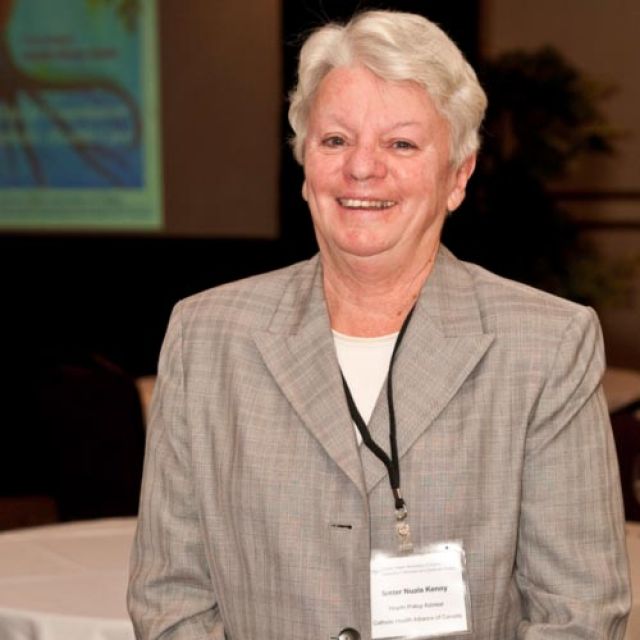TORONTO - For most of her career as a leading pediatrician and professor of medicine, Sr. Nuala Kenny diagnosed cancers, complex infections and syndromes in some of the smallest, frailest and most precious bodies among us.
At 70, having survived her own cancer, Kenny has turned her diagnostic eye on the body of Christ itself.
In Healing the Church: Diagnosing and Treating The Clergy Sexual Abuse Crisis, Kenny examines the history, cause and symptoms of the greatest crisis the Church has faced in its modern history — sexual abuse of children and youth by priests, and bishops who protected and reassigned offending priests.
She doesn’t come at the subject out of nowhere. Kenny was there at ground zero, when the first major sex abuse scandal in North America broke in Newfoundland. She served on then-St. John’s Archbishop Alphonsus Penny’s unprecedented commission of enquiry when the Mount Cashel scandal was followed by Fr. James Hickey’s 1988 arrest on 32 counts of sexual misconduct.
From the 1990 Newfoundland report, Kenny went on to contribute to the Canadian Conference of Catholic Bishops’ guide to sexual abuse policies called From Pain to Hope. She has been consulted by individual bishops and bishops’ conferences ever since. In February this year she spoke at the Vatican-sponsored symposium
“Towards Healing and Renewal” in Rome.
If people think tighter screening of seminary candidates or stricter enforcement of canon law will somehow solve the problem, then they don’t understand, Kenny told The Catholic Register.
“Somehow or other, the response of our leaders in the Church still sits with a diagnosis of this is the sins of individual men — either individual perpetrators or individual mismanagers — and therefore the treatment has to do with protocols, policies, screening and education,” she said.
“This is not the right diagnosis. I’m a doctor who knows about right diagnosis. The way we responded here — secrecy, denial, minimization of harm, protection of image, protection of offender, avoidance of scandal — we responded that way because that’s who we are. We are not a people of justice and compassion. We are not a people open to the truth of what happens when the vulnerable are hurt.”
Kenny admits to passion and righteous indignation, but not anger.
“I live in hope, right?”
Like others before her, Kenny finds the root of the problem in clericalism, that false sense of greater honour bestowed on the ordained.
But she doesn’t blame priests and bishops any more than she blames lay people who insist on putting their priests on pedestals.
“It’s a kind of superficial deference, a superficial bowing to power and authority that is not based on any real, loving kind of relationship,” she said. “We have lay people who have not been helpful.”
The cure will be long and difficult, but it will start with replacing artificial and superficial relationships with real love and support, she said.
“I want us to find a new way to be of support to one another, priests and people.”
The book itself aims to be part of that culture change, Kenny said. The 127-page softcover book is the size of a school workbook. Each chapter ends with Scripture passages, questions and reflections intended to spark conversation. It’s a book meant to be read and talked about by priests and parishioners together.
“We have a Church that doesn’t have a tradition of talking together about things,” she said. “The key in all abuse is to allow people to speak of it. If you can’t name it then you can’t identify what must be healed. There’s nowhere to go unless you name it first.”
Healing the Church: Diagnosing and Treating The Clergy Sexual Abuse Crisis is available from Novalis for $24.95.


